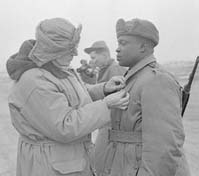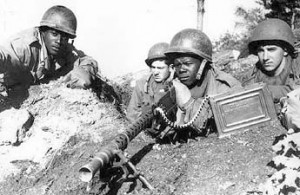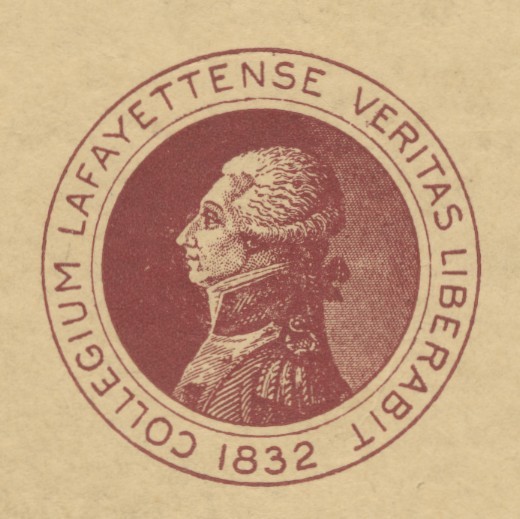Helen Stevenson Perception of Race and Prejudice in the Far East
From early on in her correspondence Helen Stevenson comments often on racial interaction between blacks and whites in the armed forces stationed in the Far East. As a background, the 1950’s the beginning of the two decade fight for Civil Rights in the United States. An important step towards racial equality happened on July 26, 1948 when President Harry Truman issued Executive Order 9981 which abolished racial discrimination in the United States Armed Forces. This order desegregated the armed forces for the first time in American History and combined white and black units to form a united military. Helen Stevenson is observing relations just two years after this order where many soldiers served in segregated units. In her letters home she mentions race relations often and though she expressed a pro-civil rights sentiment she documented both negative and positive race relations in Korea and Japan.
On November 4, 1950 Helen describes a peaceful coexistence between white and black soldiers aboard a C-45 military plane bound for Tokyo. She writes: “…the negroes sit along side the whites and they all seem to get along beautifully- one negroe boy has his head in the lap of a white sergeant!! (I guess your committee report for Truman was a real success Pop)” In this particular instance Helen describes the Army as reacting well to the desegregation of the armed forces, I found it remarkable that an organization so rooted in tradition can accept such a drastic change so quickly. But as the saying goes, the more things change the more they stay the same and not all army personal reacted to the change in policy as well as those who flew to Japan with Helen.
In a January 14th letter to her family, Helen talks extensively about the racial prejudice inside the Red Cross Organization. She describes her annoyance with the racial perspectives of the Red Cross Headquarters on a trip into Tokyo. She writes:
“All of the club girls but the 3 negroes (Phylis, Sylvia & Blanche) are working in hospitals- and at least we feel needed. The 3 negro gals feel utterly useless doing what they are (which is mostly just sitting around.) They hear of the big need there is for personnel in hospitals but they won’t send the 3 girls to hospitals because they are negro- Boy it burns me up and the Red Cross supposedly (ha, ha) had no race prejudice… We sure could use another person at Johnson- I’m determined to see what I can do- It seems it is the hospital girls (Red X) who don’t want negro Red Cross gals working with them- If Red X workers feel that way then I don’t think they ought to be in Red Cross”
Helen elaborates on this frustration and discontent in a January 27th Letter where she not only discusses the Red Cross racial problems but that of the Johnson Air Force Base where she is stationed in Japan as well. Helen believes that the negro girls should be allowed to work alongside the white girls in American military hospitals in Japan. She doesn’t understand why there is an under-staffing problem in these hospitals with extra workers that are prohibited to work because of their race. Helen’s perspective represents that of a younger generation (She is only 21 at this point) but is relatively uncommon for the early 1950’s where race still dictated the cultural thought.
“I also gave Fran (Cleary: Recreational Supervisor Red Cross in Tokyo) quite a talking to about the three negro girls. She kept saying that it would not work out if they were sent to hospitals. I am firmly convinced that it would. I asked her point blank to send of the colored girls out here to this hospital and give it a try. YOU NEVER KNOW UNTIL YOU TRY. And we sure need another person here. Here at Johnson we have two negroe nurses (who just came) and the special service club on the base has a staff of 4 and one of those gals is Negore… There are also many Negroe officers on the base. I would say that one third of our patients are colored. Everything points to the fact that to have one of the three Red Cross Negro girls at the hospital would be a success.”
In addition to discussing the Red Cross prejudice, Helen also mentions the problems that the Air Force base is having with racism in her January 27th letter. Though the military officially desegregated two years prior, many older members of the military still remembered segregated units and continued to believe in racial discrimination. She writes:
“Along the racial lines a very interesting thing happened in the hospital…. Remember I told you about the dances I used to take the boys to at the Service Club on the base?? That have had to be discontinued these because of the Negro problem. It seems the Service Club gals (even though one of them was a Negro) didn’t like having to dance with Negroes. Another aspect of it was that the white G.I.s didn’t like to see the white gals dancing with the Negroes. It all seems so silly in many ways.”
Helen is extremely ahead of her time, and I don’t think at the time she realized how right she would be when she wrote “We have a long way to go before we wipe out racial prejudice completely.”



Leave a Reply